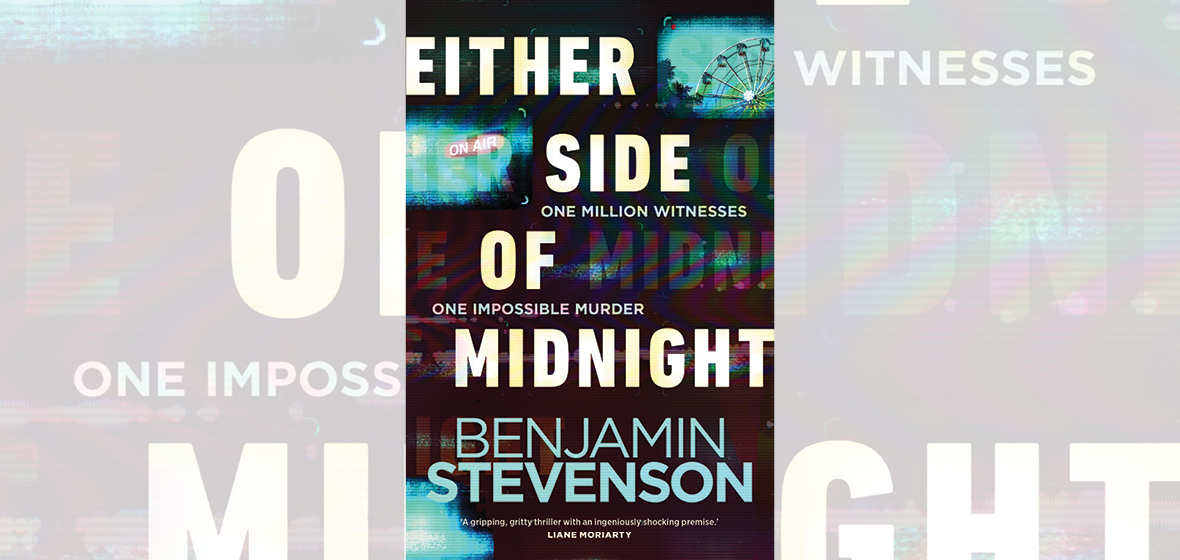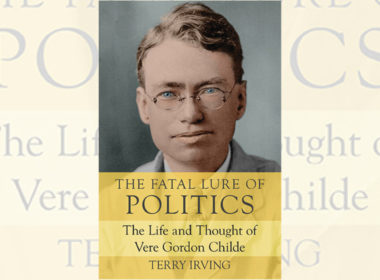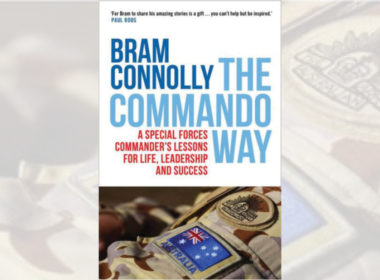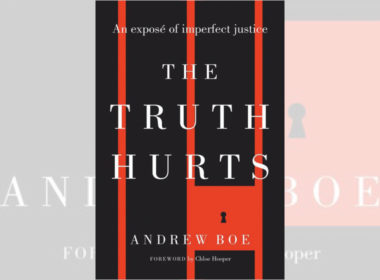Sam Midford opens the monologue for his weekly current affairs show by shooting himself in the head. It’s this heart-in-your-mouth scene that opens Either Side of Midnight, the latest work by emerging Australian crime novelist Stevenson.
Standing in for the cynical detective or private investigator is the next best thing in 2020: true crime podcaster and producer Jack Quick, himself fresh out of prison for interfering with a cold case (that storyline is the subject of Stevenson’s breakout book Greenlight, but he is careful not to give too much away so the books can be enjoyed in either order). Jack is looking for distraction from decisions that need to be made about his permanently comatose brother Liam, so when Sam’s twin Harry turns up with a bold declaration that his brother was murdered, he agrees to poke around.
Either Side of Midnight explores ideas of murder by coercion and draws on the real-life case of American teenager Michelle Carter, convicted of manslaughter due to her involvement in the suicide of her boyfriend. The idea of the deadly power of words runs across the main storyline, as well as in Jack’s grappling with how to say goodbye, or not, to his beloved brother.
The male characters in this work contain multitudes and the book is at its best when tracking the clear and unspoken struggles in their relationships. In one scene, Harry sits in his cluttered and lonely apartment, surrounded by the voices of departed family members and trying, heartbreakingly, to connect with them. The female characters – overworked and undervalued producer Beth, Sam’s partner Celia, and the ghost of teenager Lily Connors – are more one-dimensional. Still, the story flies past in a pinch over 300 pages with well-paced twists that keep the reader engaged in the book’s premise of ‘if the answer is impossible, try changing the question’.




